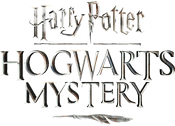GewoonLeonYT (talk | contribs) No edit summary |
(interwikilink) |
||
| Line 56: | Line 56: | ||
*[[Harry Potter: The Wand Collection]] |
*[[Harry Potter: The Wand Collection]] |
||
==Notes and references== |
==Notes and references== |
||
| − | {{Reflist}} |
+ | {{Reflist}} |
| + | |||
| + | [[de:Eschenholz]] |
||
| + | [[es:Fresno]] |
||
[[it:Frassino]] |
[[it:Frassino]] |
||
[[pl:Jesion]] |
[[pl:Jesion]] |
||
Revision as of 14:06, 5 December 2019

|
Warning!
At least some content in this article is derived from information featured in Harry Potter: Hogwarts Mystery. Spoilers will be present within the article. |
Ash (genus Fraxinus) is a type of tree belonging to the genus flowering plants in the olive and lilac family, Oleaceae, known as Fraxinus. It contains 45-65 species of usually medium to large trees, mostly deciduous though a few subtropical species are evergreen. The leaves are opposite (rarely in whorls of three), and mostly pinnately compound, simple in a few species. The seeds, popularly known as "keys" or "helicopter seeds", are a type of fruit known as a samara. Rowans (or Mountain Ashes) are unrelated to true ashes and belong to the genus Sorbus though the leaves and buds are superficially similar.[1]
Wandlore
The ash wand clings to its one true master and ought not to be passed on or gifted from the original owner, because it will lose power and skill. This tendency is especially valid if the core is constructed of unicorn hair. Old superstitions regarding wands rarely bear close examination, but it is believed that the old rhyme regarding rowan, chestnut, ash and hazel wands (rowan gossips, chestnut drones, ash is stubborn, hazel moans) contains a small nugget of truth. Those witches and wizards best suited to ash wands are not lightly swayed from their beliefs or purposes.[2]
However, the brash or over-confident witch or wizard, who often insists on trying wands of this prestigious wood, will be disappointed by its effects. The ideal owner may be stubborn, and will certainly be courageous, but never crass or arrogant.[2]
Broomsticks
Some early broomsticks, such as one on display in the Museum of Quidditch, were also made of ash.[3]
Ash wand owners
Etymology
The tree's common English name, "ash", goes back to the Old English æsc, while the generic name originated in Latin. Both words also meant "spear" in their respective languages.[4]
Behind the scenes
- Harry Potter and the Prisoner of Azkaban states the Firebolt's handle to be made of ash. Pottermore, however, retcons this, instead listing its composition as ebony.
Appearances
- Harry Potter and the Philosopher's Stone (film) (First mentioned)
- Harry Potter and the Philosopher's Stone (video game)
- Harry Potter and the Chamber of Secrets (film)
- Harry Potter and the Chamber of Secrets (video game)
- Harry Potter and the Prisoner of Azkaban
- Quidditch Through the Ages
- The Tales of Beedle the Bard (Mentioned only)
- LEGO Harry Potter: Years 1-4
- Pottermore
- Harry Potter: Hogwarts Mystery (Mentioned only)
- Harry Potter: The Wand Collection
Notes and references
- ↑ Ash at Wikipedia
- ↑ 2.0 2.1 Pottermore
- ↑ Quidditch Through the Ages, Chapter 1 (The Evolution of the Flying Broomstick)
- ↑ Encyclopedia of Indo-European culture, J. P. Mallory, Douglas Q. Adams, aylor & Francis, 1997, ISBN 9781884964985, p. 32



